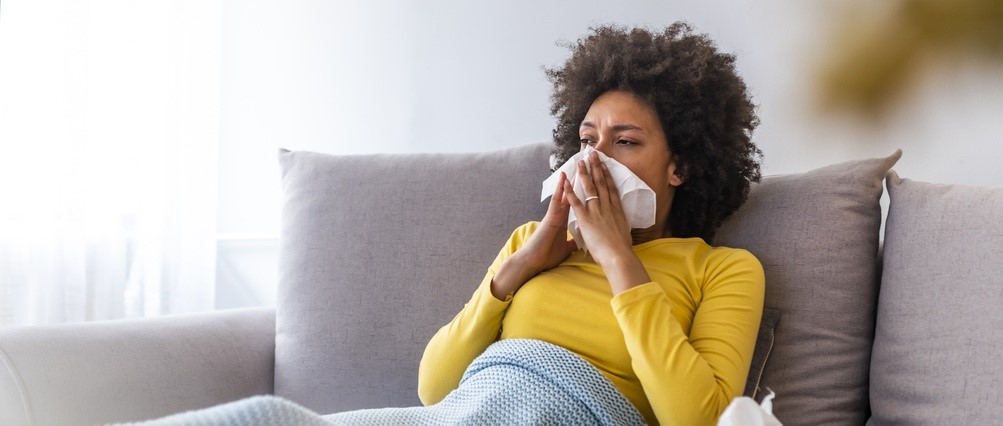
Should young adults worry about flu?
Peer reviewed by Dr Sarah Jarvis MBE, FRCGPAuthored by Gillian HarveyOriginally published 30 Oct 2020
Meets Patient’s editorial guidelines
- DownloadDownload
- Share
- Language
- Discussion
We're used to hearing about flu season each winter - and many people in more vulnerable groups get vaccinated against this seasonal malady. Teenagers and young adults without underlying health conditions are generally considered more robust against this illness. But should they be more concerned about the flu? And does the current pandemic make a difference?
In this article:
Video picks for Flu and vaccination
Feature illustrated by Tor Ewen.
Continue reading below
Young and resilient?
As a general rule, people in their 'prime' - late teens to late 30s - are more physically resilient when it comes to flu. But that doesn’t mean that this illness can't have a serious impact, even on the seemingly healthy. In addition, recent strains may have led to the flu becoming more of a risk to younger people than it may have been in the past.
"Swine flu (2009) was quite unusual in that it did make younger people more ill, more often. And the H1N1 variant of that virus is now the ancestor of many of the viruses circulating at the moment. So in that respect it is possible for people to get quite unwell with flu," explains Dr Stephen Griffin, virologist at Leeds Institute of Medical Research.
"In addition, all of these things are on a spectrum and measured with percentages - and when you apply even a small percentage to a population, the number of people affected can be quite high."
It's also important to remember that while older children and young adults may be less susceptible to severe flu, very young children may not be as robust. That's one of the reasons why all children from age 2 years to those in the first year of secondary school are being offered the flu vaccine on the NHS this year. This group also appears to be particularly good at spreading the flu virus, which can mean they could infect vulnerable adults.
Flu and coronavirus
Back to contentsOne of the major risks this season - even for healthy individuals - is contracting flu and coronavirus at the same time. "Having the two conditions at the same time could tip the balance even in someone healthy," agrees Griffin, who recommends that everyone get a flu vaccination if possible. Recent evidence from Public Health England shows that people who are infected with both flu and coronavirus are more than twice as likely to die as those who have coronavirus alone.
Even if you have the flu on its own, if you - or others you have infected - develop complications this could mean hospitalisation. In times of pandemic, this could add to what will already be a difficult winter for healthcare providers. "If you think about it, each year we hear about A&Es being overcrowded and having to shut down - and a lot of that is to do with respiratory virus infections," he explains. "If you dampen the flu through vaccination it will cut the number of people dying as well as take the pressure off hospitals."
Continue reading below
Protecting others
Back to contentsEven if you're lucky enough to be in your prime, and have no underlying health conditions, it's important to be mindful of the flu. Like coronavirus, flu may be passed from those who are relatively fit and healthy to those who are more vulnerable.
If you are unable to get a flu vaccine, it's important to be mindful of symptoms and careful not to spread the illness if you catch it. This may be helped by existing measures brought in to combat coronavirus. "If there's one good thing about the pandemic, it may be that we'll have an easier flu season this year," explains Griffin. "The response to COVID-19 has meant a better public understanding of how to combat the spread of respiratory viruses."
Vaccination
Back to contentsThe NHS currently offers the vaccine free to adults aged 65 and over, those who work or act as a carer, those who have certain health conditions or women who are pregnant. Importantly, this year, the vaccine is also being offered to those who are living with someone who is shielding from coronavirus.
Children are also offered the vaccine - in the form of a nasal spray - if they are aged 2 or 3 years on 31 August 2020, if they attend primary school, or if they are in year 7 of secondary school. In addition, those who are deemed high risk for flu will be offered this vaccine.
The flu vaccine is also available to purchase for £14 or less at many chemists for those not in the above groups. And the great news is you don't need a prescription, although this year (to protect against COVID-19 spread) you're likely to need an appointment.
You can find out whether you or your child are eligible for a flu vaccination using the our eligibility checker. You can even book your flu vaccine through Patient Access.
Continue reading below
Don't dismiss the flu
Back to contentsBecause the flu has been around for many years, it's easy to write it off as part and parcel of a normal winter. Very few of us give the illness much consideration unless we are particularly vulnerable. But as flu causes around 10,000 deaths per year in England and Wales perhaps it's something to take a little more seriously.
"People tend to say 'Oh, it's just the flu' but it's important to remember that flu kills many people each year," agrees Griffin. "Flu vaccines tend to work really well - they cover many different strains."
Even if you are relatively low-risk, having a vaccine should help reduce the spread of flu, thus protecting vulnerable groups. It could also reduce pressure on the NHS at what is expected to be a critical time, and - importantly - help you to realise if you have developed symptoms of COVID-19 by taking flu out of the equation.
Being young has many health advantages; but when it comes to the flu, it's important to understand the facts and how best to protect yourself and others.
Patient picks for Flu and vaccination

Infections
Can I have the flu jab if ...?
The leaves start changing colour and flu season begins. If you're considering the flu jab, you might be wondering if you're eligible.
by Milly Evans

Infections
How to book your flu jab before winter
Winter is coming and with it comes an increased risk of catching flu. Flu can leave many of us feeling dreadful and bedridden for days, but for some people, the effects can be more severe or even life-threatening. Getting your flu jab is the best way to protect yourself and others - and here’s how to get yours.
by Lydia Smith
Continue reading below
Article history
The information on this page is peer reviewed by qualified clinicians.
30 Oct 2020 | Originally published
Authored by:
Gillian HarveyPeer reviewed by
Dr Sarah Jarvis MBE, FRCGP

Ask, share, connect.
Browse discussions, ask questions, and share experiences across hundreds of health topics.

Feeling unwell?
Assess your symptoms online for free
Sign up to the Patient newsletter
Your weekly dose of clear, trustworthy health advice - written to help you feel informed, confident and in control.
By subscribing you accept our Privacy Policy. You can unsubscribe at any time. We never sell your data.